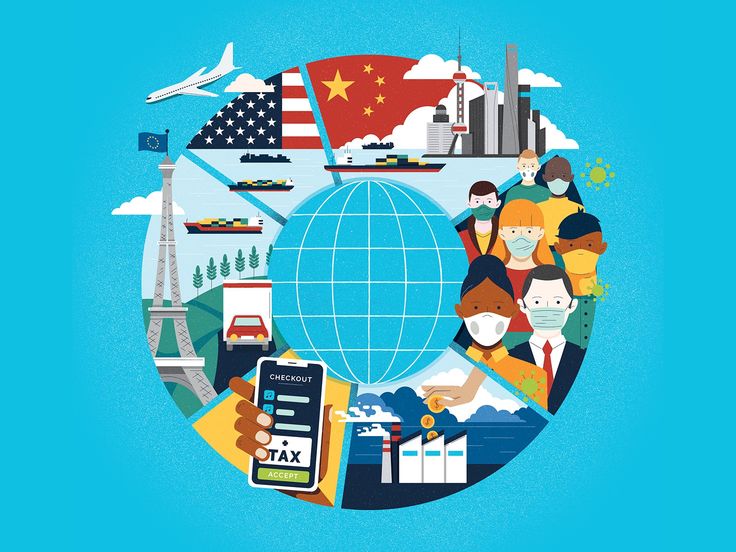
Globalize Wealth: Understanding the Dynamics of Global Wealth Distribution
Globalize Wealth: Understanding the Dynamics of Global Wealth Distribution
In today’s interconnected world, the distribution of wealth has become a critical issue that transcends borders and impacts economies, societies, and individuals worldwide. From ancient civilizations to modern globalization, the concept of globalizing wealth has undergone significant transformations, shaping the economic landscape and influencing socio-political dynamics on a global scale.
Historical Context of Global Wealth Distribution
Throughout history, the distribution of wealth has been shaped by various factors such as trade, colonization, industrialization, and globalization. From the feudal systems of the Middle Ages to the rise of capitalism in the 18th and 19th centuries, wealth distribution has evolved alongside changes in economic systems and societal structures. The accumulation of wealth has often been concentrated in the hands of a few, leading to disparities within and among nations.
Current Global Wealth Distribution
In the contemporary era, the distribution of global wealth is characterized by stark inequalities. A small percentage of the world’s population holds a disproportionately large share of wealth, while the majority struggles with poverty and economic instability. Factors such as globalization, technological advancements, and neoliberal economic policies have contributed to widening the gap between the rich and the poor, both within countries and across regions.
Impact of Globalized Wealth
The concentration of wealth has far-reaching implications for economies and societies worldwide. Economically, it can lead to decreased consumer spending, limited access to education and healthcare, and reduced social mobility. Socially, it can exacerbate existing inequalities, fuel social unrest, and undermine democratic institutions. Moreover, the concentration of wealth in the hands of a few can perpetuate cycles of poverty and marginalization, creating barriers to upward mobility for future generations.
Challenges of Global Wealth Redistribution
Despite growing awareness of global inequality, achieving equitable wealth distribution remains a formidable challenge. Structural barriers, including unequal access to resources, discriminatory policies, and power imbalances, hinder efforts to redistribute wealth on a global scale. Moreover, entrenched interests and resistance from affluent individuals and corporations pose significant obstacles to meaningful change.
Initiatives and Solutions
Addressing global wealth inequality requires a multi-faceted approach involving international cooperation, policy reforms, and grassroots initiatives. Efforts such as progressive taxation, wealth redistribution programs, and investments in education and social welfare can help mitigate the effects of unequal wealth distribution. Additionally, promoting transparency, accountability, and ethical business practices can contribute to a more equitable distribution of resources and opportunities.
Future Outlook
Looking ahead, the future of global wealth distribution is fraught with both challenges and opportunities. While persistent inequalities continue to pose significant obstacles, there is growing momentum for change. Grassroots movements, advocacy efforts, and international initiatives are pushing for systemic reforms aimed at creating a more just and equitable global economic system. By addressing the root causes of inequality and fostering inclusive growth, there is potential to build a future where wealth is more equitably distributed, and prosperity is shared by all.
Conclusion
In conclusion, the global distribution of wealth is a complex and multifaceted issue that has profound implications for societies worldwide. From historical legacies to contemporary economic trends, the concentration of wealth poses significant challenges to global stability and prosperity. However, by acknowledging the root causes of inequality and implementing targeted interventions, there is hope for creating a more equitable and sustainable future where wealth is shared more equitably among nations and individuals.
FAQs
-
What are the main factors contributing to global wealth inequality?
Global wealth inequality is influenced by a combination of factors, including economic policies, technological advancements, globalization, and historical legacies of colonization and exploitation.
-
How do initiatives for wealth redistribution work on a global scale?
Global initiatives for wealth redistribution often involve mechanisms such as progressive taxation, international aid, debt relief, and investment in social welfare programs aimed at reducing poverty and promoting economic equality.
-
What role do corporations play in global wealth distribution?
Corporations can influence global wealth distribution through their economic activities, including wealth accumulation, investment decisions, and corporate social responsibility initiatives that impact communities and economies worldwide.
-
What are some of the challenges facing efforts to address global wealth inequality?
Challenges include entrenched interests, political resistance, lack of international cooperation, and structural barriers such as unequal access to resources and opportunities.
-
How can individuals contribute to promoting global wealth redistribution?
Individuals can support efforts for global wealth redistribution by advocating for policy reforms, supporting ethical businesses, engaging in philanthropy, and raising awareness about the importance of economic justice on a global scale.
Hi, this is a comment.
To get started with moderating, editing, and deleting comments, please visit the Comments screen in the dashboard.
Commenter avatars come from Gravatar.